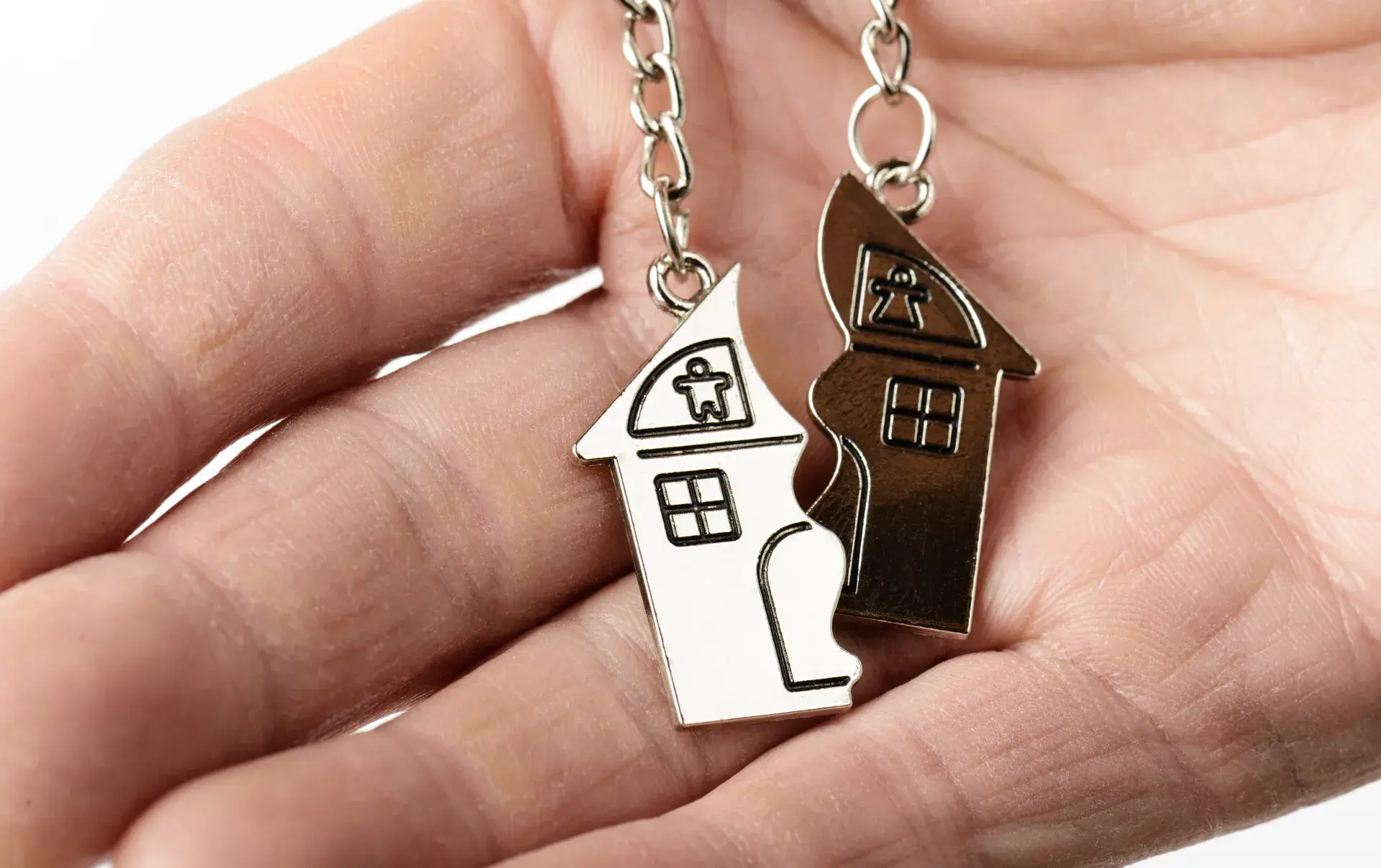Understanding Matrimonial Property
Division of property and assets is one of the most significant areas of concern for couples getting divorced.
When a couple decides to divorce (or dissolve their civil partnership), the court will consider all assets and property acquired during the marriage as matrimonial property. This includes:
- The family home, which is usually the most substantial asset for couples. Whether it’s owned outright, mortgaged or rented, the court will assess its value and consider the needs of both parties and any dependent children.
- Savings and investments such as joint bank accounts, ISAs, shares, pensions and other investments accumulated during the marriage. These are considered matrimonial property and are subject to division.
- Personal property – encompassing household items, vehicles, jewellery and any other possessions acquired during the marriage.
Learn more about matrimonial vs non-matrimonial assets, division of pension rights, and the process of reaching a fair financial settlement. Find out more here.
The Principle of Fairness
In determining the division of matrimonial property and assets, the court operates under the principle of fairness, rather than strict 50/50 equality. This means that each case is assessed individually, taking into account various factors including:
Duration of marriage – while there is no predetermined formula for asset division, longer marriages may result in a more equal distribution of assets compared with shorter marriages.
Needs and responsibilities – the court prioritises the needs of any dependent children and the financial responsibilities of each spouse. Factors such as the age and health of the parties, earning capacity and standard of living are also taken into consideration.
Contributions – the court considers both financial and non-financial contributions made by each spouse to the welfare of the family. This includes earnings, homemaking, childcare and any other relevant contributions.
Pre-nuptial/post-nuptial agreements – while such agreements are not legally binding, they do carry weight and will be taken into consideration in a financial settlement – provided the agreement is deemed fair and reasonable. Find out more here.
Types Of Asset Division
There are several ways in which assets can be divided in divorce and dissolution proceedings:
Direct division – this involves physically dividing assets such as savings and investments. It could also mean selling the family home and splitting the proceeds.
Offsetting – one party may retain certain assets, such as the family home, in exchange for the other person receiving a larger share of other assets, such as pensions or savings.
Pension sharing – pensions can be one of the most valuable assets in a marriage. The court can order a pension sharing arrangement, in which a portion of one spouse’s pension is transferred to the other spouse in an attempt to equalise income in retirement.
Maintenance payments – in some cases, one spouse may be required to make ongoing maintenance payments to the other spouse to support their financial needs post-divorce.
Such a provision can be necessary in circumstances where there is a significant disparity in the spouses’ incomes. Maintenance payments can be in the form of a lump sum or regular payments over a certain period of time.
Protecting Your Interests
To ensure a fair and equitable division of property and assets in divorce and dissolution proceedings, it’s essential to seek specialist legal advice from an experienced family law solicitor.
Here are some steps you can take to protect your interests:
Gather documentation – collect evidence of all assets and property that are owned either jointly or individually. This could be property deeds, bank/pension statements and valuations of valuable items.
Consider mediation – this can be an effective way to reach a mutually acceptable agreement on the division of assets without the need for court intervention. A trained mediator can help you and your spouse to agree a settlement. If an agreement is reached, this can then be written up into a Financial Consent Order by a solicitor for the approval of the court.
Negotiate in good faith – try to approach negotiations with an open mind and a willingness to compromise. Remember that reaching a fair settlement is often in the best interests of both parties and any dependent children.
Be prepared for court – if an agreement cannot be reached through negotiation or mediation, the court may need to intervene to make a final decision. In this instance, you will need expert legal representation.
Legal Advice Tailored To Your Needs
Divorce proceedings can be stressful – particularly when it comes to dividing property and other assets.
So it is important to understand your legal rights and obligations.
Remember, every case is unique. So your solicitor should tailor their approach to help you secure a fair settlement.
Next Steps: Get Expert Help
- Consult a Family Lawyer. Professional advice is invaluable. Book a chat with a family lawyer to discuss your situation.
- Financial Planning. Start planning for your post-divorce financial future. Consult an independent financial adviser.
- Support Systems. Divorce can be emotionally taxing. Support from professionals, friends, and family is crucial during this time.








